“South Africa, for all it has achieved, remains a fragile democracy, still vulnerable to the ghosts and demons of its violent past.” — Bill Berkeley
This year, South Africa commemorates the 30th anniversary of its democracy, and President Cyril Ramaphosa has officially declared that our nation’s 7th democratic election is scheduled for May 29, 2024. The African National Congress (ANC), once hailed as the beacon of hope for a better South Africa, stands at a crossroads. Despite its pivotal role in ending apartheid, the ANC’s governance in recent years has been marred by corruption, inefficiency, and a failure to address the needs of the most vulnerable in society. In 1994, the ANC promised a “better life for all,” three decades later, one can superimpose present areas with the highest poverty rates onto the Apartheid-era map and see the former homelands and the current impoverished regions blending perfectly into one. Sifiso Khanyile’s A New Country shows that European descendants comprise 7.9% of the population and own and occupy 72% of land and agricultural holdings. Patric Tariq Mellet gives insight into how white-owned companies and banks own 44% of South Africa’s land surface in The Lie of 1652: A decolonised history of land.
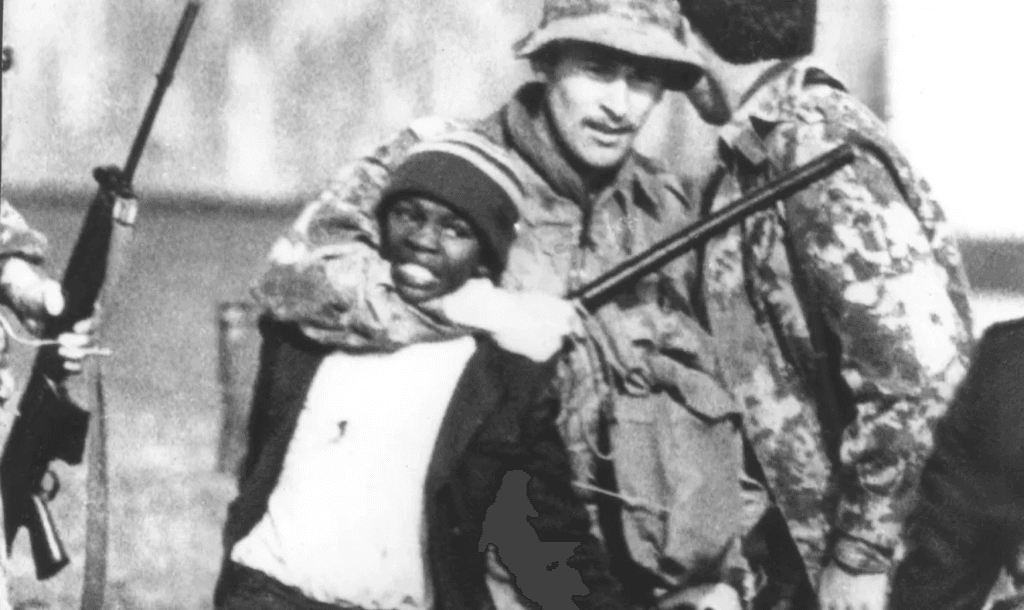
The ANC has failed us. South Africa remains one of the most unequal countries in the world, with a Gini coefficient (measures income distribution across a population) of approximately 0.67. And any positive efforts made to undo or remedy past wrongs have not outweighed the immense disappointments dished out to the general public by the ANC’s greed; from Marikana, Zweli Mkhize’s Digital Vibes (our minister of health stealing public funds during a pandemic????), state capture to political killings and tender-preneurships, the ANC has failed us.
Most Africans in this country continue to serve as cheap labour for white individuals and corporations, reflective of an imperial, capitalist economic, and social structure built on land dispossession and exploitation. Making it clear that not much has changed for the native people since the ‘end’ of colonialism and the political end of a government founded on—in the words of Bernedette Muthien and June Bam—“the violent, brutal, genocidal racial hierarchy of white over black, called Apartheid.” In answering who was liberated in 1994, Dr. Beverley Palesa Ditsie says, “1994 liberated racist hetero-patriarchal white South Africa to be free to continue to be racist hetero-patriarchal white South Africa, freely.” Despite South Africa having 30 years of so-called freedom, there is a continuation of structural white supremacy that sustains itself by ensuring that black people remain in perpetual servitude—physically, emotionally, spiritually, institutionally and economically.
It’s crucial to diversify perspectives beyond the failures of the ANC. While acknowledging its shortcomings, we must also engage with alternative voices and solutions. Opposition parties, civil society organizations, and grassroots movements play a vital role in holding those in power accountable and advocating for meaningful change. By fostering a culture of dialogue and collaboration, we can harness the collective wisdom and energy of all sectors of society to address our most pressing challenges.
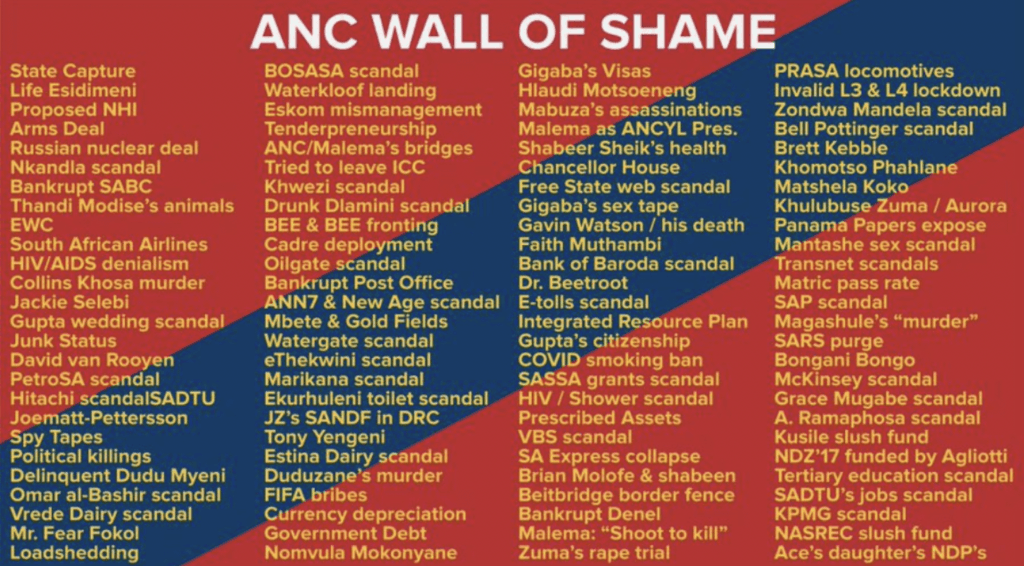
On April 27th, 1994, South Africa saw 22.7 million eligible voters, of which 19.7 million participated in the national election. Fast forward to the present, we now have 27.7 million registered voters out of a total eligible population of 42.3 million. While only 65% of eligible voters have registered, it’s notable that discussions on pressing issues such as escalating load shedding, pervasive corruption within the ANC, widening economic disparities, persistent femicide, hate crimes, Afrophobia, exorbitant living costs, and racism abound in our society. The concerns are myriad and urgent, demanding collective attention and action. We can’t just complain about the crises that plague our country, we need to exercise our rights — such as our right to vote.
The recent data released by the Electoral Commission of South Africa (IEC) revealing the low voter registration numbers among individuals aged 18-29 is disheartening. It appears that many in my age group fail to grasp the significance of voting and the profound value of this fundamental right. In the words of Kendall Roy, everyone is too online and has lost context.
It’s important to remember that the right to vote was one of the rights that were fiercely fought for by countless freedom fighters, such as Ahmed Timol, Bantu Stephen Biko, Chris Hani, Dulcie September, Nokuthula Simelane, Ruth First, Solomon Mahlangu, and numerous others who made the ultimate sacrifice.
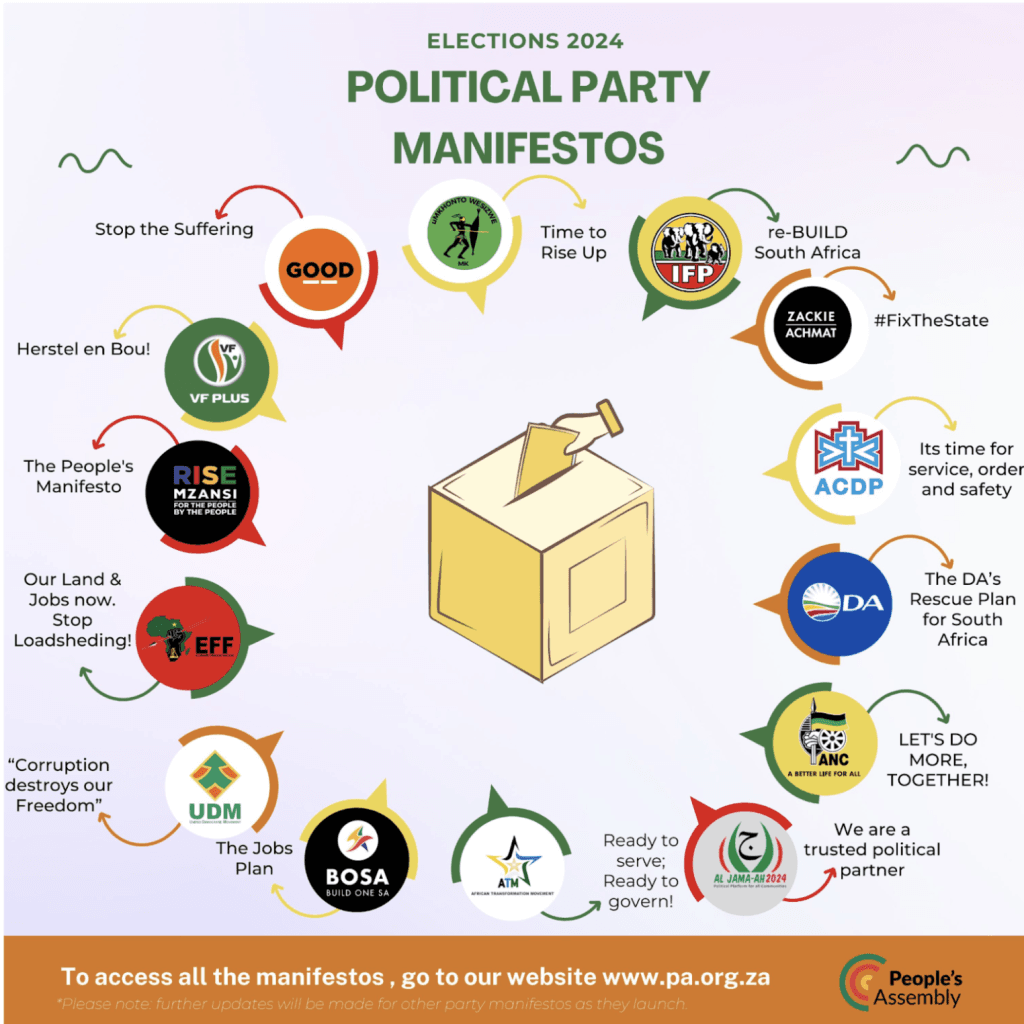
As we approach the upcoming election, it’s incumbent upon us as citizens to exercise our democratic rights thoughtfully and with discernment. Voting is not merely an act of civic duty but a powerful tool for driving change and shaping the future of our nation. However, our engagement should not end at the ballot box. Active participation in civic life, community organising, and advocacy efforts is essential for translating electoral outcomes into tangible progress. Despite my efforts to address the issue of white supremacy in my discourse, it remains imperative to emphasize that while the ANC has fallen short, we cannot rely on the Democratic Alliance (DA) to provide the solution. Having resided in Cape Town for several years, it has become unmistakably evident that the DA’s agenda mirrors an attempt to replicate a European environment within South Africa, which is fundamentally unacceptable because…again… this is AFRICA. If you’re uncertain about your vote next month, consider reviewing the manifestos of each political party here.
“An election manifesto serves as a blueprint, outlining the policies a political party pledges to enact if entrusted with power during a general election. Prior to an election, each political party releases an official manifesto, laying down the foundation for its campaign. These documents serve a pivotal function by articulating to voters why their support is warranted.”
The words of the late Tata Nelson Rolihlahla Mandela, spoken on the 27th of April, 2004, serve as a poignant reminder of the ideals we continue to aspire to in 2024:
“This is for all South Africans, an unforgettable occasion. It is the realisation of hopes and dreams that we have cherished over decades. The dreams of a South Africa which represents all South Africans.
It is the beginning of a new era. We have moved from an era of pessimism, division, limited opportunities, turmoil and conflict.
We are starting a new era of hope, reconciliation and nation-building.
We sincerely hope that by the mere casting of a vote, the results will give hope to all South Africans and make all South Africans realise this is our country. We are one nation.
Our message is that the basic needs of the masses of the people must be addressed: the creation of jobs, of houses, the introduction of electricity, building of schools and hospitals, providing free, compulsory quality education, running water, paved roads. These are our priorities.
But we are also concerned about the minorities in the country – especially the white minority. We are concerned about giving confidence and security to those who are worried that by these changes they are now going to be in a disadvantaged position. I again repeat that I have throughout my life as I pointed out in the Rivonia Trial:
“I have fought very firmly against white domination. I have fought very firmly against black domination.”
I cherish the idea of a new South Africa where all South Africans are equal and work together to bring about security, peace and democracy in our country. I sincerely hope that the mass media will use its powerful position to ensure that democracy is installed in this country. And I thank you.”
I am hopeful that the approaching election presents a chance for genuine transformation, where we recognise the immense power vested in us, the public. Fear of government should be replaced with a government’s prudent acknowledgement of the people’s authority. Openness and responsiveness should define governance, with leaders attentively heeding the desires of their citizens. Regrettably, the current administration not only neglects our desires but also our essential needs. Urgent change is imperative. Hence, I urge you to cast your vote thoughtfully and with keen discernment.
If you’d like to be entertained whilst being informed follow Zethu Gqola and Dan Corder.
HEAT AND SWEAT
(for sisters and brothers who may be weary)
so you keep looking back
if you did not listen when the past was breathing
the present erases your name
child don’t let laughter from insane strangers snatch our faces
the present is surprised at our songs
it is shocked that we still walk the streets the way we do
lost as we are
torn and bewildered by the sounds of our names
it is surprised that though the sight of our eyes staggers
and though the gait of our shadows seems to limp
we still put brick on brick and tell our children stories
so you keep looking back
even when the darkness is so thick it could touch your eyeballs
even when the darkness is such a huge space
ready with an insatiable thirst, swallowing, and even ready still to swallow
the last red drop that trickles still from your little heart,
don’t you hear the songs
they can live in the present if we let them
these songs have a prowess of our mother’s back
and the eloquence of our grandmother’s foresight
about the time that never was
and the earth whose rhythm is an intoxicated dizziness
child
feel the wall while you walk and hold, hold
glue your eye into the distance and keep walking
move, child, move
if we don’t get there
nobody must . . .”
— Wally Serote, 1975



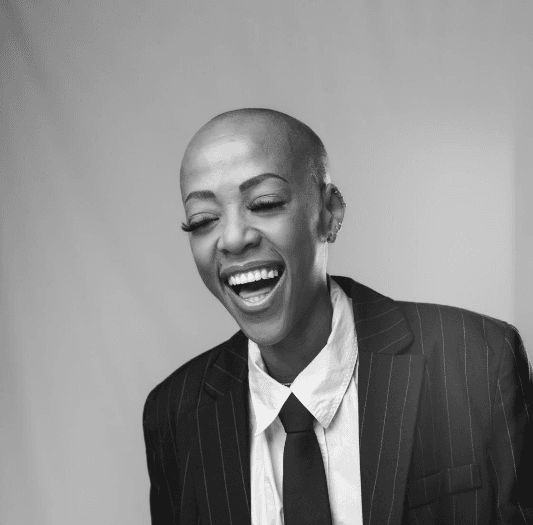
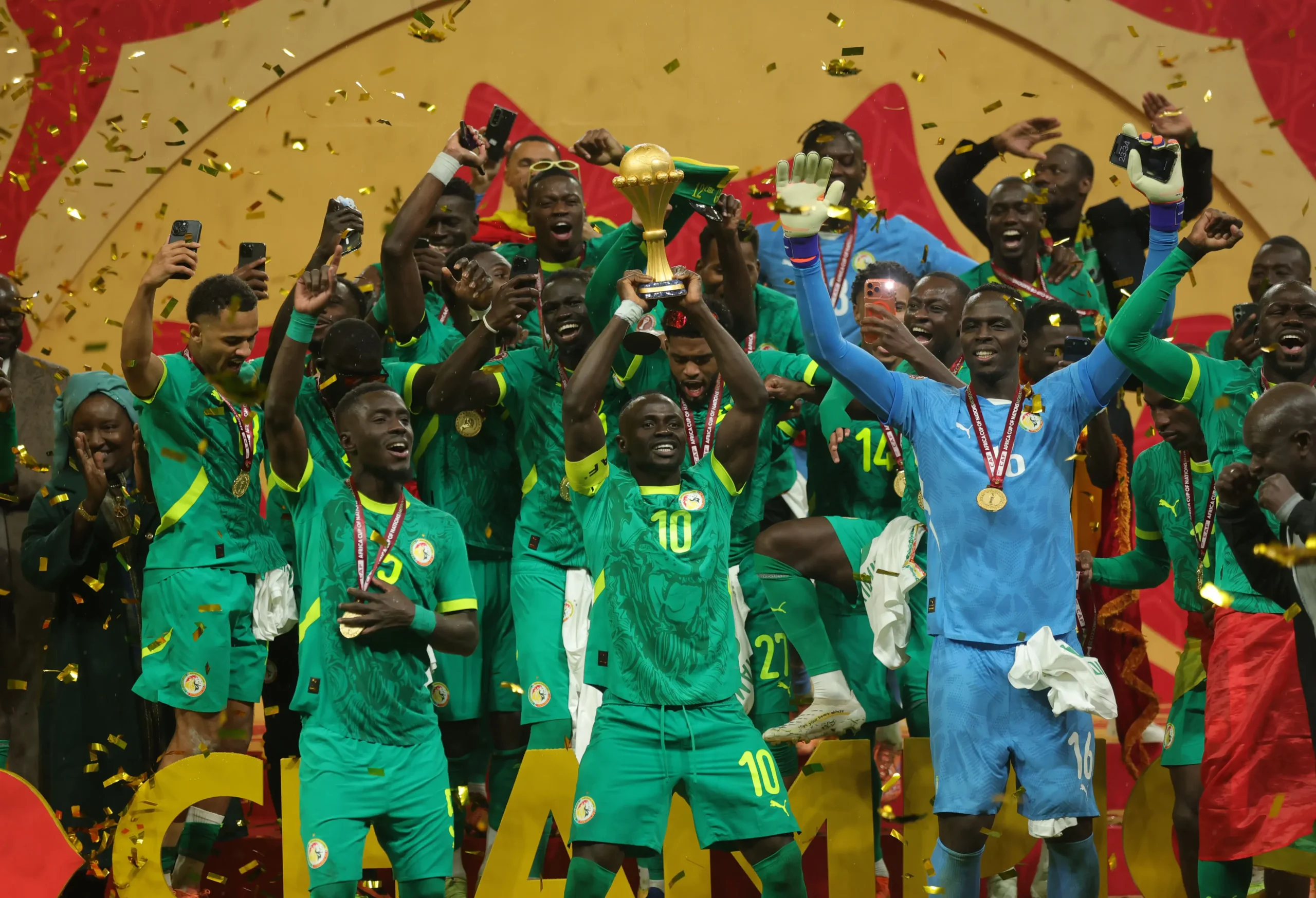

No Comments